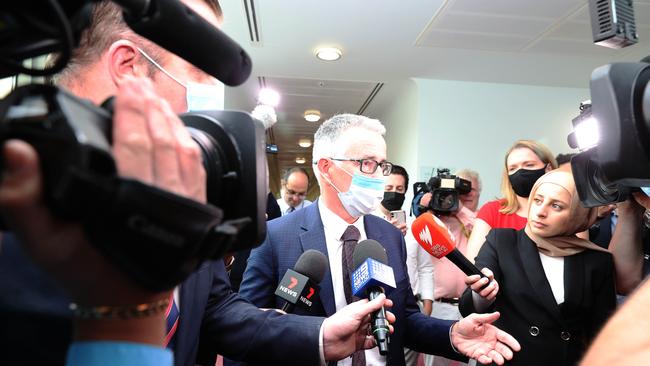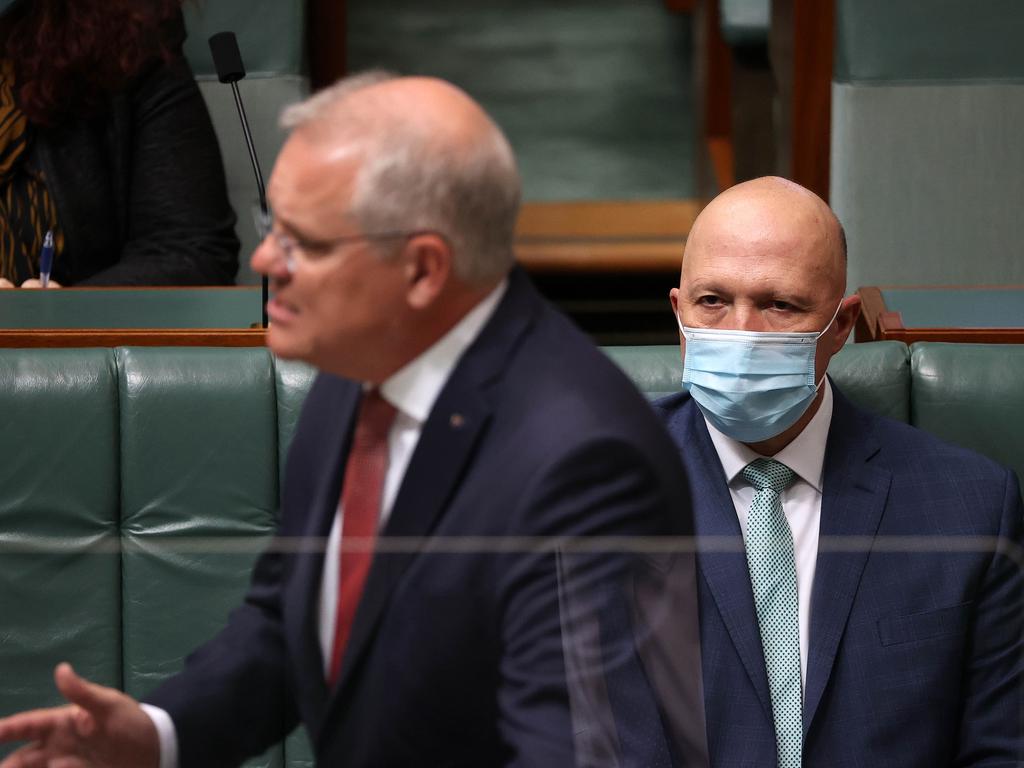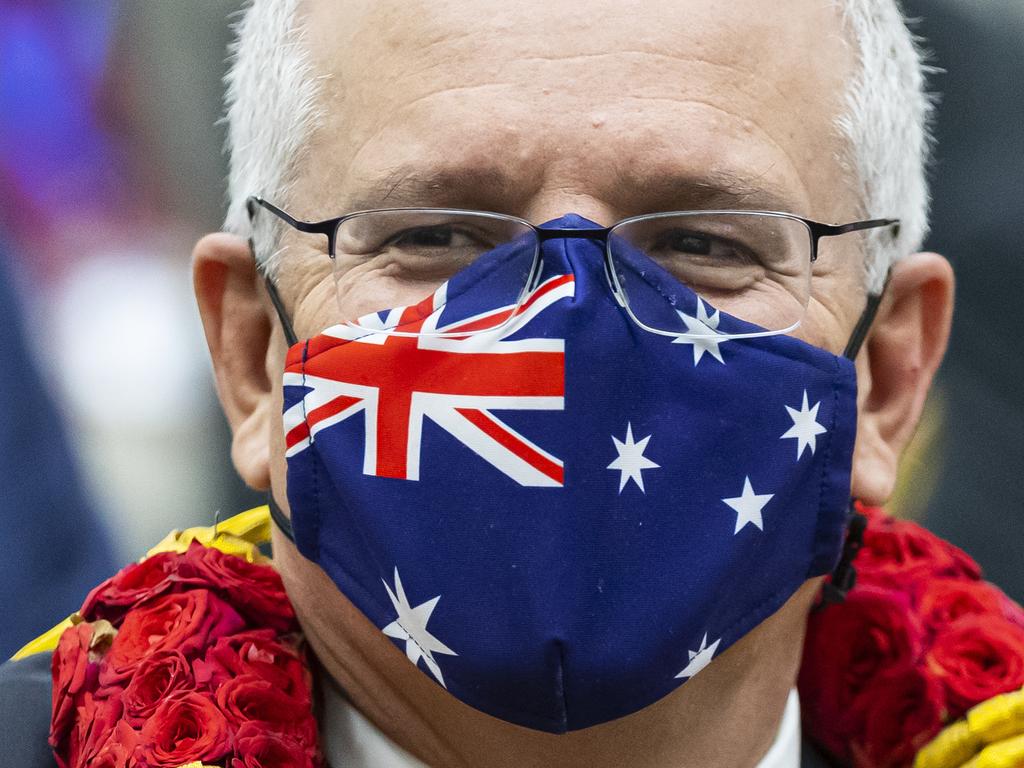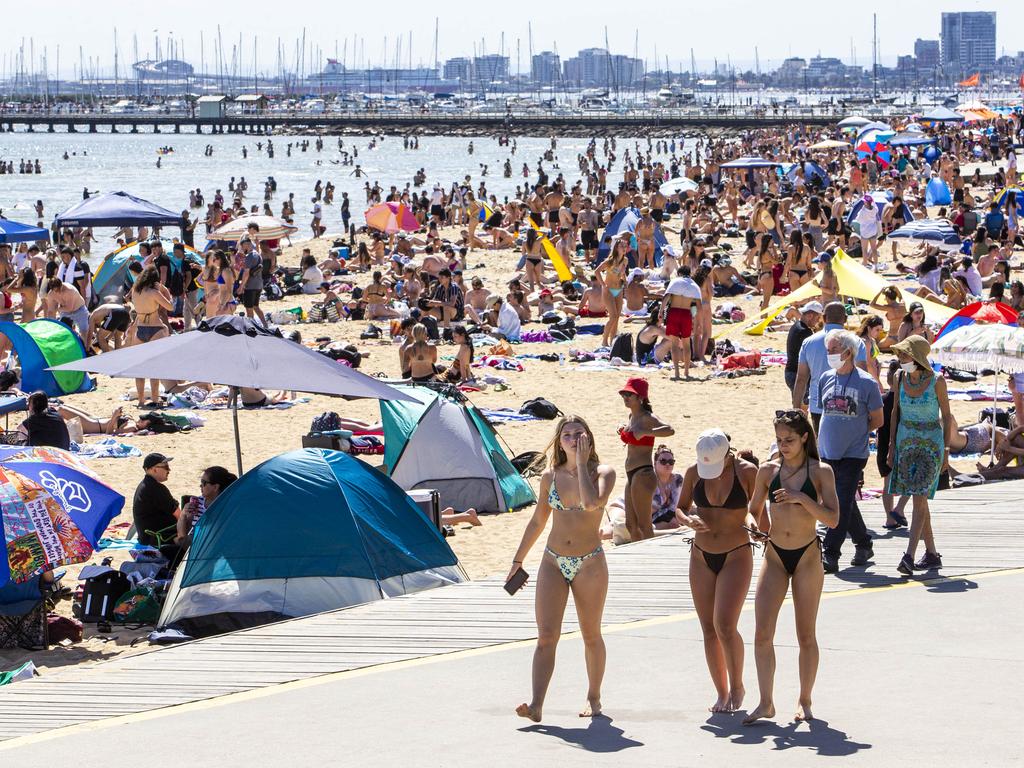You can take it from Menzies – divided, the Liberals will fall
Looking at the state of the Liberals and Nationals right now, it seems to be a rehearsal for the end of the world as they know it.

As a result, it will be an extraordinary achievement if Scott Morrison can lead the Coalition to victory at next year’s election – which is likely to be held in March, April or May.
Since its formation a century ago, the Australian Labor Party has always had a rule that its parliamentarians have to abide by the decisions agreed to by a majority of members in the partyroom, called the caucus. In other words, Labor MPs are free to vote anyway they choose. If they vote with their colleagues, they are free to remain in caucus. And if they refrain from doing so, they are free to leave.
Not so the non-Labor side of Australian politics. Today’s Liberal Party and Nationals (formerly the Country Party) and their predecessors have never insisted that their parliamentarians pledge themselves to the majority decisions reached in their respective partyrooms. This means the member parties of the Coalition can boast that their partyrooms are more democratic than that of the Labor Party. But such freedom can come at a political price.
Most Australian elections are close, including the last two when the Coalition narrowly held on under Malcolm Turnbull’s leadership in 2016 and did slightly better under Morrison in 2019. For the Coalition’s luck to prevail, it needs quiet on the electoral front.
Members of the Coalition have crossed, or are threatening to cross, the floor and vote with Labor, the Greens and independents. These include the likes of Matt Canavan (Nationals) and Trent Zimmerman (Liberal Party) who have a record of achievement in the ministry and/or the parliament. And it includes the likes of Liberal senators such as Alex Antic and Gerard Rennick, who primarily are known on account of the fact they are dissidents.
There is a lesson here concerning something of which some of the contemporary real and potential floor-crossers may not be aware. In August 1941, Robert Menzies, prime minister of the United Australia Party-Country Party Coalition government, was forced to stand down by his UAP colleagues. (Note the UAP that Menzies led has nothing whatsoever to do with Clive Palmer’s organisation of the same name.)
In time, the then Coalition government collapsed and Labor’s John Curtin became prime minister, replacing Arthur Fadden who had succeeded Menzies. At the subsequent election in August 1943, the non-Labor side of Australian politics suffered probably its worst electoral defeat. At the federal level in late 1943, there were no fewer than six non-Labor parties competing against Labor and, on occasions, each other.
It was this division that led Menzies to found and lead a unified Liberal Party of Australia in late 1944, early 1945. He defeated Ben Chifley, Curtin’s successor, at the December 1949 election.
In Australia, traditionally, the political conservatives have been more successful than the social democrats. But internal divisions within the former brought about a situation in which Labor governed Australia for almost all of the 1940s. If the present indiscipline within the Liberals and Nationals continues apace, Australia could well be heading for a medium to long-term Labor government – perhaps dependent on the Greens and/or the left-leaning independents.
And there are the other right-of-centre parties: Pauline Hanson’s One Nation, Campbell Newman’s Liberal Democrats and Palmer’s UAP. Any increase in support for such parties could well harm the Coalition as the preferences of their candidates leak away from the Coalition to Labor.
Then there are the left-of-centre parties. First up is the Jacqui Lambie Network, which has said it will direct preferences away from the Liberals. This would matter in Tasmania where the Coalition holds two marginal seats and hopes to win another.
And then there is the “Voices of” movement, which aims to defeat Liberal MPs such as Katie Allen, Josh Frydenberg, Greg Hunt and Tim Wilson in Victoria and Zimmerman, Dave Sharma, Jason Falinski and Angus Taylor in NSW.
The “Voices of” movement presents itself as a group of independents – but it only targets Liberal, not Labor, seats.
On September 29, the ABC’s Fran Kelly gave a soft interview to Simon Holmes a Court who presides over the Climate 200 organisation, which is supporting various self-declared independent candidates, most of them well-heeled, who will run against the Liberal Party. Holmes a Court was unchallenged by Kelly when he declared that for Australia to reach net-zero carbon dioxide emissions by 2050 would be woefully “inadequate”.
Now the Coalition and Labor are committed to a target of net-zero emissions by 2050. In which case Holmes a Court and his organisation also should be running candidates against the Labor Party in its relatively safe seats – since Labor’s position must also be “woefully inadequate”. But this is not happening because the “Voices of” movement is effectively a nice-sounding front for the green left.
It’s clear that the Coalition is under political attack on numerous fronts. In view of this, there is only one defence that makes any sense. That is to unite in response to a multilateral attack. If this does not occur within a short time, the chances of Anthony Albanese becoming Labor prime minister next year will increase dramatically.
Not all political conservatives understand the problem. The current issue of The Spectator Australia contains an editorial that argues “a Labor/Greens victory would be an unmitigated disaster for this country”. But it goes on to state it would be “almost as detrimental … to reward the increasingly left-leaning Liberal-Nationals government with a strong majority”.
This statement is just, well, nuts from a political conservative point of view. Any diminution of the Coalition primary vote can only help left-of-centre parties, from Labor to the extremist Greens. It would lead to the end of the right-of-centre government in Australia. So, almost certainly, will the Coalition’s internal divisions if they continue into the new year.
Gerard Henderson is executive director of the Sydney Institute. His Media Watch Dog blog can be found at theaustralian.com.au.







Looking at the state of the Liberal Party and the Nationals in Parliament House right now, it seems that their parliamentarians are undertaking a general rehearsal for the end of the (political) world as they know it, to somewhat rephrase an old saying.